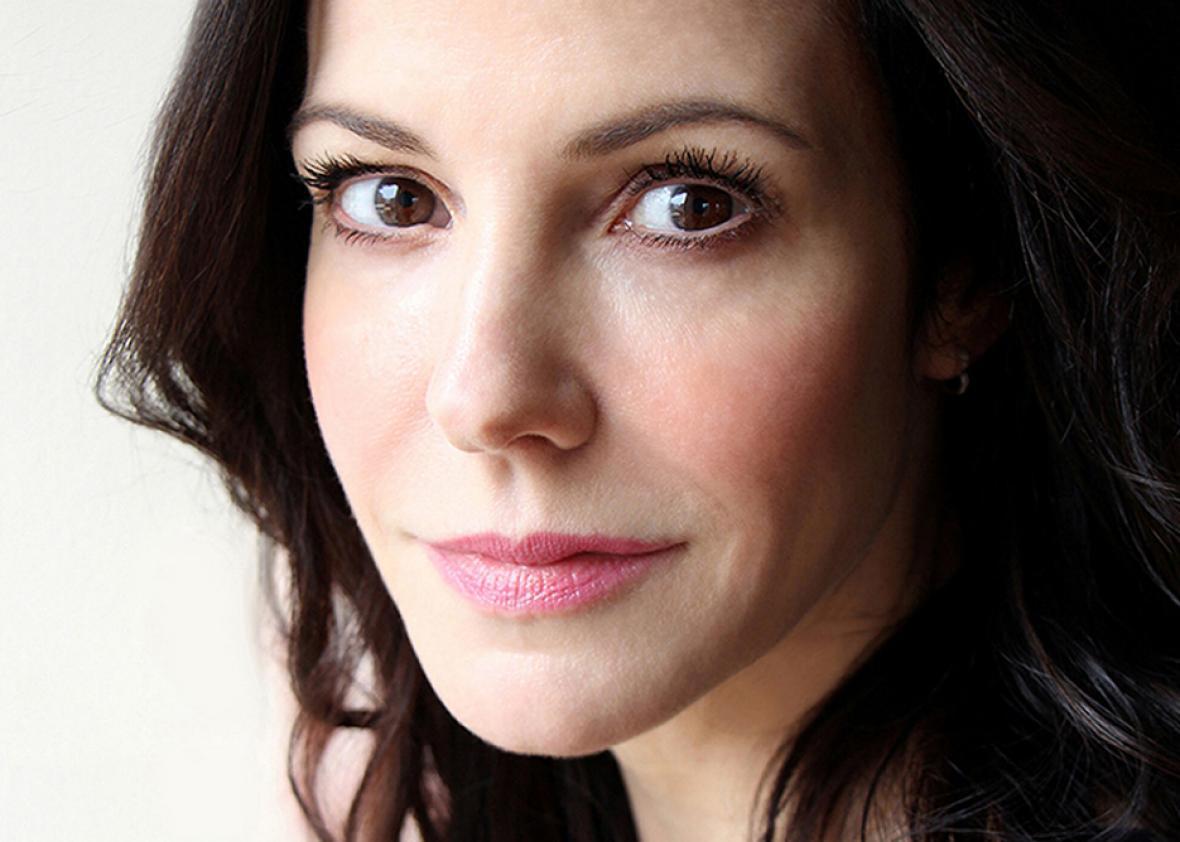Mary-Louise Parker is not your typical debut author—a Tony-, Emmy-, Obie-, and Golden Globe–winning actor, she has appeared on screen in Weeds, The West Wing, and Angels in America, and onstage in Proof. Her book, Dear Mr. You, is a collection of letters to the men in her life; part memoir and part epistolary prose poem, it combines the empathy and introspection of Leslie Jamison with the lyricism of Philip Levine. At a diner near Parker’s home in Brooklyn, she talked about motherhood, grief, self-criticism, and more. This interview has been edited and condensed for clarity.
One deeply moving aspect of your book is how you write about the loss of your father. The last letter in the book, “Dear Oyster Picker,” is written to the anonymous man who picked the oysters for your father’s last meal. How did that letter evolve?
I think that last letter is the point of the whole book. It’s about a man I’ve never met, yet I felt so grateful toward him. I started reading all these facts about oyster pickers, and I had no idea what they go through. It wasn’t just a literary device—I really do envision this person, and the fantasy of him helped me make sense of life a little bit. The metaphor is that we’re all somehow working for each other in tiny ways, without knowing it.
Motherhood is a significant part of your book as well. You write that after having children, “Romantic love felt silly by comparison.” How did becoming a mother change you?
I wanted to be a mother my whole life, and there are so many fantasies of motherhood I’ve had that have come true—filling Christmas stockings, bathing the baby, walking children to school, making birthday cakes. They fulfill me in ways that maybe other things fulfill other people. I would have a very different career if I didn’t have children, but in many ways, the word “career” doesn’t even mean anything to me. I wanted to work as an actor and just have jobs and support myself. I don’t think of some big picture or something I’m trying to achieve—I’m achieving it as long as I have food on the table.
The writer Elizabeth McCracken said recently, “I’m 2 percent delusions of grandeur and thinking my work is amazing and 98 percent self-loathing.” How do you feel about your own work?
There’s no critic on Earth who could match my own critiques of myself—as a person, as an artist, as everything. No one will ever be harder on me than me. People have been so kind to me [about the book], and I’m having to work to absorb it. I want my children to know how to do that—I want them to see me happy that something good happened to me, and not feel like I have to apologize for it or reason it away or talk myself out of it.
Do you think women tend to be more self-critical than men?
I don’t know. My self-criticism isn’t so much negative as it is striving for better. I’m not really ever finished. I’m going to keep going until I think it’s good enough, which is never.
Did you feel that way while writing the book—that it wasn’t finished?
Yes! I did so many drafts. It got better, but there are a couple letters that I think I’d like to have another shot at still.
Self-doubt must be even more difficult for an actress, because you’re so frequently evaluated by your appearance. The best part of being a writer is that you get to stay home in your pajamas and look like a homeless person.
It’s exhausting, the whole “Who are you wearing?” thing. It has nothing to do with why I ever started acting in the first place or why I wanted to do it. A lot of times, people are superexcited to see me simply because I’ve been on television; sometimes they’ve really liked what I’ve done or they’ve been moved by it, but a lot of times it doesn’t have much to do with me at all. It matters to me when people say something nice, but for every nice thing, people are also willing to come up and tell you things that are highly inappropriate or hurtful. Writers are more removed from that, I think, because no one’s going to come up to you in a Dairy Queen. With writing, you get to disappear a little bit.
Are some readers disappointed that your book isn’t a tell-all full of gossip?
I wrote a book that’s the opposite of that, and so it’s disconcerting when people come at me with a gossipy point of view. I understand they expected that, but it doesn’t matter how far they dig—that’s not what they’re going to find. People want to be able to codify other people, to sort them out; they want to put a face on you. If you haven’t picked a face, they’ll pick one for you.
After you found out that your father was dying, he told you, “Just write, keep writing; promise me that you will.”
I remember standing there in Square Books [in Oxford, Mississippi,] when he said that. I was upstairs, in between the aisles and crying, but trying not to let him know that I was crying.
